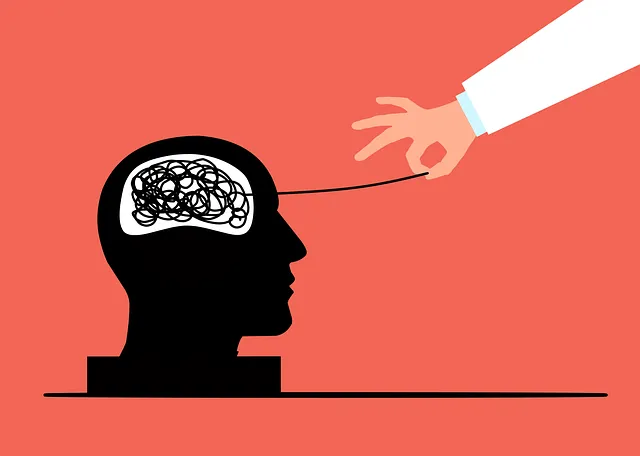Kaiser offers comprehensive mental health services in Denver, focusing on holistic care and tailored support for individuals dealing with stress-related issues. Their approach includes empathy, trauma support, stigma reduction, mindfulness techniques, self-care education, and burnout prevention programs. These services aim to address root causes of stress, promote well-being, and reduce its impact on lives. Through mindfulness practices, educational resources, and dedicated professional care, Kaiser empowers individuals to manage stress, enhance mental health, and find balance in a fast-paced world.
Stress management is a vital skill, especially in today’s fast-paced world. This article explores effective techniques to combat stress and its impact on mental well-being. We delve into Kaiser’s innovative approach to mental health services in Denver, highlighting their comprehensive offerings. Through a combination of understanding stress triggers, adopting mindfulness practices, and educational strategies, individuals can gain control over their mental health. Learn how these techniques, backed by research, can transform daily routines, offering a peaceful path forward. Discover the power of self-care and explore accessible resources, including those provided by Kaiser, to cultivate resilience against life’s challenges.
- Understanding Stress and Its Impact on Mental Health
- Kaiser's Approach to Mental Health Services in Denver
- Effective Stress Management Techniques for Everyday Life
- The Role of Teaching and Education in Stress Mitigation
- Benefits of Incorporating Mindfulness and Relaxation Practices
Understanding Stress and Its Impact on Mental Health

Stress is a natural response to various life challenges, but when it becomes chronic, it can significantly impact mental health. Understanding stress involves recognizing its triggers—be they work-related pressures, personal relationships, or financial worries—and acknowledging how the mind and body react. High levels of persistent stress may contribute to anxiety, depression, and other mental illnesses. This is where Kaiser offers mental health services in Denver, providing crucial support and resources for individuals navigating these challenges.
Beyond addressing symptoms, Kaiser’s programs often incorporate empathy-building strategies, trauma support services, and mental illness stigma reduction efforts. These initiatives aim to create a safe space for individuals to process their experiences, develop coping mechanisms, and build resilience. By addressing the root causes of stress and fostering understanding, these services play a vital role in promoting overall well-being.
Kaiser's Approach to Mental Health Services in Denver

Kaiser, a prominent healthcare provider in Denver, offers a comprehensive approach to mental health services aimed at supporting both patients and their providers. Their model emphasizes an integrated system where mental health care is seamlessly woven into primary healthcare services. This holistic strategy ensures that individuals receive tailored support for their unique needs.
Beyond direct patient care, Kaiser invests heavily in the well-being of its mental health professionals. They implement robust programs focused on risk assessment and burnout prevention strategies for healthcare providers. Additionally, cultural competency training plays a significant role, equipping staff with the skills to deliver empathetic, culturally sensitive care to diverse patient populations.
Effective Stress Management Techniques for Everyday Life

In today’s fast-paced world, stress has become an ever-present companion for many. However, managing stress effectively is a valuable skill that can greatly enhance one’s quality of life. Kaiser offers mental health services in Denver, providing a range of tools to combat this ubiquitous challenge. One powerful technique is mindfulness meditation, which encourages individuals to focus on the present moment, thereby reducing anxiety and promoting calmness. Regular practice can transform stressful situations into opportunities for growth and resilience.
Additionally, developing a self-care routine is essential for better mental health. This involves prioritizing activities that rejuvenate the mind and body, such as exercise, healthy eating, and adequate sleep. Communication strategies also play a vital role in managing stress; expressing feelings openly and effectively can help alleviate tension and strengthen relationships. By incorporating these practices into everyday life, individuals can take control of their mental well-being and find greater balance amidst life’s demands.
The Role of Teaching and Education in Stress Mitigation

Teaching and education play a pivotal role in stress management by equipping individuals with essential tools to navigate life’s challenges. Incorporating self-awareness exercises into educational curricula can help students develop an understanding of their emotional responses, enabling them to recognize and manage stress early on. These exercises foster mindfulness, encouraging students to become aware of their thoughts and feelings without judgment, a skill valuable in reducing stress levels and promoting mental wellness.
Beyond classroom practices, institutions can support student mental health by offering resources such as mental wellness podcast series production, providing platforms for open discussions about stress management. Additionally, implementing community outreach program initiatives allows for peer-to-peer support, where students can learn from each other’s experiences. Organizations like Kaiser in Denver also provide mental health services, highlighting the growing recognition of the importance of addressing student stress and overall mental wellness.
Benefits of Incorporating Mindfulness and Relaxation Practices

Incorporating mindfulness and relaxation practices into daily routines offers a plethora of benefits for managing stress and promoting overall well-being. These techniques, such as meditation and deep breathing exercises, have been scientifically proven to reduce anxiety levels and improve mental clarity. For individuals seeking effective stress management, self-care practices like these can be transformative. They provide tools to navigate life’s challenges with greater composure, enhancing both physical and mental health.
In the context of a city like Denver, where Kaiser offers mental health services, incorporating mindfulness becomes even more valuable. The fast-paced urban lifestyle can be demanding, leading to increased stress and potential mental health risks. By prioritizing self-care through practices that foster relaxation, individuals can mitigate these risks. Additionally, these techniques are especially beneficial for mental health professionals who may encounter high-stress situations daily. Incorporating mindfulness into their routines could aid in managing workload-related anxiety and ensuring a healthier work-life balance, as highlighted in the Risk Assessment for Mental Health Professionals.
Stress management is a powerful tool for enhancing mental well-being, and education plays a pivotal role in equipping individuals with effective techniques. As discussed, Kaiser’s approach to mental health services in Denver highlights the importance of accessible resources, while mindfulness and relaxation practices offer tangible benefits for everyday life. By integrating these strategies into teaching and community initiatives, we can foster healthier, more resilient individuals. So, if you’re wondering how to manage stress, look no further than these evidence-based techniques—a step towards a calmer and more balanced future, even in the busiest of cities like Denver.






